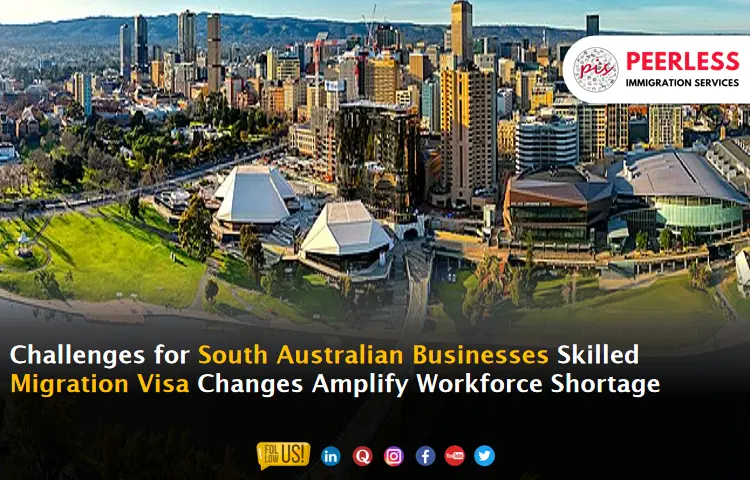
Challenges for South Australian Businesses Skilled Migration Visa Changes Amplify Workforce Shortage
In the heart of South Australia’s south-east, the picturesque town of Naracoorte is facing an unexpected hurdle – a severe shortage of skilled workers. The owner of Pearl Continental restaurant, Hafeez Ullah, is sounding the alarm, calling for immediate revisions to the skilled migration visa program. The changes, implemented as part of the South Australian General Skilled Migration (GSM) program for 2023-24, have left regional businesses struggling to find qualified personnel, sparking concerns across various sectors, including hospitality, tourism, aged care, and automotive industries.
Skilled Migration Woes
Hafeez Ullah, director, and head chef at Pearl Continental, is grappling with the impending departure of three chefs whose visa agreements conclude in February. Despite advertising for replacements for over two months, not a single applicant has surfaced. This challenge, according to Mr. Ullah, extends beyond his restaurant, affecting diverse sectors in regional South Australia.
Changes in the Skilled Migration Program
The South Australian GSM program, initiated in late September, was designed to attract skilled workers to address labor shortages and offer pathways to permanent residency. However, the federal government’s decision to reduce state nominations from 8,800 to 2,300 resulted in the removal of three streams, including the outer regional stream.
Consequences on Regional Areas
The elimination of the outer-regional stream, which previously encouraged skilled migrants to move to regional areas, is now feared to trigger an exodus of skilled workers from country regions. Mr. Ullah emphasizes that urgent action is needed to prevent this from adversely affecting not just the hospitality sector but the broader regional economy.
Calls for Change
Independent state MP Nick McBride and Federal Member for Barker, Tony Pasin, echo the need for policy revisions. The concern is that under the current program, there’s little distinction between businesses in regional and metropolitan areas, potentially prompting skilled workers to migrate to larger centres.
The Regional Impact
Naracoorte Lucindale Mayor Patrick Ross highlights the unintended consequences of designating all of South Australia, including Adelaide, as regional. This shift negates the benefits that were once exclusive to businesses in true regional Australia, threatening the survival of family-owned enterprises.
Government Response
South Australian Industry Minister Susan Close explains that the outer-regional category was initially a temporary measure due to the pandemic’s impact on international borders. However, she assures that alternative migration pathways, such as the Designated Area Migration Agreements (DAMAs), remain available to provide sustainable support for regional employers.
As the challenges of workforce shortages intensify in regional South Australia, the urgent plea for revisions to the skilled migration program echoes across businesses, communities, and local leadership. The delicate balance between statewide demand, regional economies, and migration policies becomes crucial in shaping the future of these small businesses and the vibrant communities they support. The need for a well-calibrated approach that addresses labor shortages without compromising the vitality of regional areas has never been more apparent.















